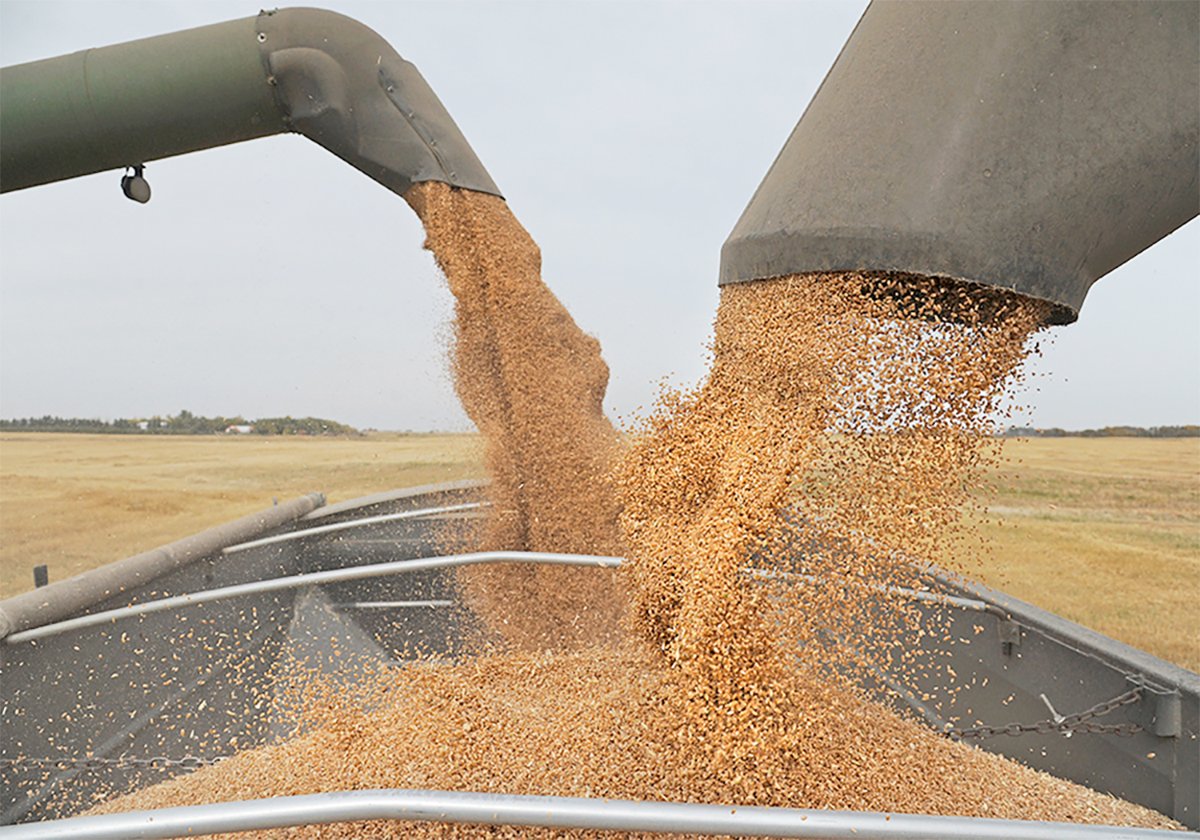In the past couple of weeks I’ve been at a couple of conferences in totally different agricultural industries that revealed that international ag trade is getting more and more and more difficult.
And this – perhaps counter-intuitively – is more and more and more fortunate for prairie farmers.
It’s not always the case, but it seemed to me from both the Canada Pork International presentation at the Manitoba Pork Council annual meeting and from two days of discussion at the Canada Grains Council meeting that higher and higher and tougher-to-meet standards for ag products traded around the world puts Canada in a situation of competitive advantage, as well as comparative advantage.
Read Also

Agriculture productivity can be increased with little or no cost
There’s a way to enhance agricultural productivity with little or no cost. It doesn’t even require a bunch of legislative changes.
The two days of the Canada Grains Council was consumed mostly by discussions of all the complications and problems and challenges brought on by situations like ochratoxin A in wheat and triffid and other accidental genetically-modified elements in crop shipments. These are causing nightmarish problems right now for the Canadian grain trade. During the pork council meeting Jacques Pomerleau of Canada Pork International highlighted the growing demand around the world for higher and higher health standards and traceability demands of buyers.
In one way, you could leave these meetings exhausted and feeling despondent about the growing demands and trade snarls in the world markets. Ochratoxin A seems sure to become an occasional cause of problems for Canadian farmers. Triffid is already a nightmare for flax growers. Other farmers are suffering because of the snarls about GM crops and which markets will accept them. And demand for super-high health standards and traceability of Canadian pigs and pork seems sure to cause occasional problems and growing demands on farmers.
But in the realm of international trade, I can’t imagine a situation that could give us a bigger advantage, because I suspect only we and a handful of competitors will consider it worth their while to comply with all the world’s demands in order to be able to continue to export meat and grain in the future. It may be a pain for us to store our crops on-farm and in the elevator system so that they don’t develop OTA, but we can do it. Does anyone think Russian and Ukrainian farmers will quickly embrace complex safety protocols in order to achieve the same status? I doubt they will, and they’ll make do with the bottom end of the grain markets, which is what they’re doing now.
The modern pig industry on the prairies has embraced quality systems like CQA in order to be able to guarantee high health status and comfort for the buyer that he knows where the pork is coming from. Only a few other countries are likely to be as willing to take on these kinds of production demands in order to keep getting the top end of the market. Every year when I go down to Des Moines, Iowa, I am amazed by all the foreign hog producers I meet there, from countries like the Philippines and Brazil. These are not countries I normally think about in terms of international pork trade. And there’s a reason for that – most of the countries in the world that produce pork can’t export it to good-paying markets because they have dangerous endemic contagious pig diseases and they can’t guarantee that their pork is safe. So most of the world’s industry is domestic because it doesn’t have the ability to get into the quality export markets.
I expect the Western Europeans will always be willing to increase their health and traceability standards in order to be able to sell their products at a premium. That probably also goes from places like Australia. It certainly goes for Canada. And the Americans will come some way towards our standards, although they’ll probably be always distracted by their giant domestic market and not be quite as aggressive as we are in meeting foreign customers’ demands.
So may the world’s customers be demanding and always jacking up their requirements, because not only will we likely be willing to meet these demands, but our willingness to cater to our customers is a key advantage we have always been able to fall back on.















